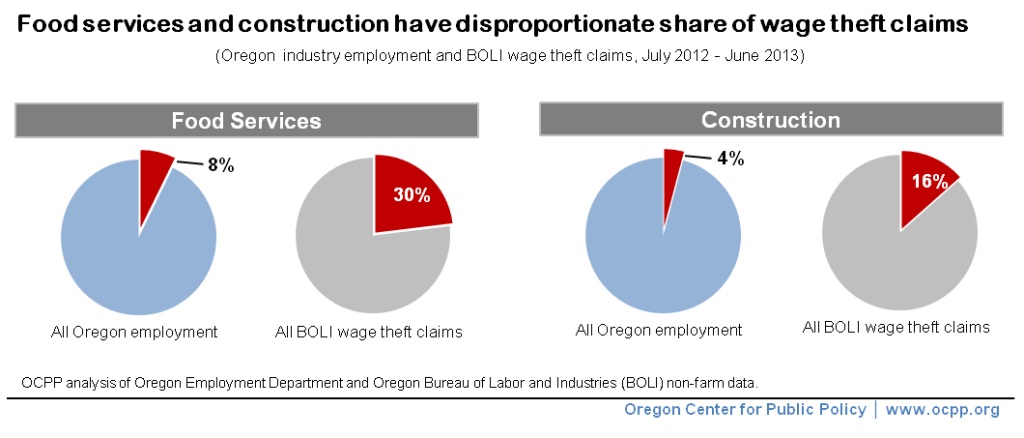Tomas and Matthew* worked for a small construction labor contractor, who hired them to perform manual labor on a general contractor’s projects. They did mostly residential remodeling projects, some small, some big, throughout the Portland metro area. They got paid – or so it seemed at first. But then the checks started bouncing and the labor contractor starting avoiding them. Ultimately, they were left unpaid for months of work.
Wage theft is particularly rampant in construction. It is consistently one of the biggest problem industries in Oregon.[1] One of the reasons for this is that some building contractors use middle men, often called labor brokers, to supply workers. And too many labor brokers steal wages, misclassify workers as independent contractors, and then disappear or run out of money before they can be held accountable.
That’s why NWJP and the Coalition to Stop Wage Theft in Oregon worked so hard to pass HB 2977. The bill amended an existing law designed to protect farmworkers to include the construction industry. This law, called the Oregon Contractor’s Registration Act (OCRA) now requires construction labor brokers to get a license from BOLI and post a bond to guarantee payment of wages. Anyone who knowingly uses an unlicensed labor broker is jointly liable with the subcontractor for wages and penalties.
Responsible construction contractors now have a choice: hire a licensed labor broker and know they are dealing with a quality operation, or, hire an unlicensed labor broker and risk having to pay the workers’ wages (and various other penalties) themselves if the broker fails to comply with the law. The law went into effect in July 2015. The law is new, and the industry is not yet paying much attention.
But what has changed is workers have a powerful new tool to collect unpaid wages. Now Tomas and Matthew, instead of being left to chase only the labor contractor whose paychecks bounced, can also go after the major building contractor who used him. Because that company hired an unlicensed labor broker, it is liable for their wages as well as thousands of dollars in additional penalties.
Little by little, through enforcing the new OCRA, we hope to help shift the incentives for contractors so that they learn it doesn’t pay to hire unlicensed labor brokers. We hope that when general contractors find themselves holding the bag for workers’ wages, they will start demanding accountability from labor brokers. And we hope that those labor brokers will soon learn they need to get a license and a bond to get any contracts in this state.
That’s why we were excited to file suit on behalf of Tomas and Matthew last month. Because we believe it was an important first step on the path to a construction industry that pays it workers the wages they have earned. Every time.
